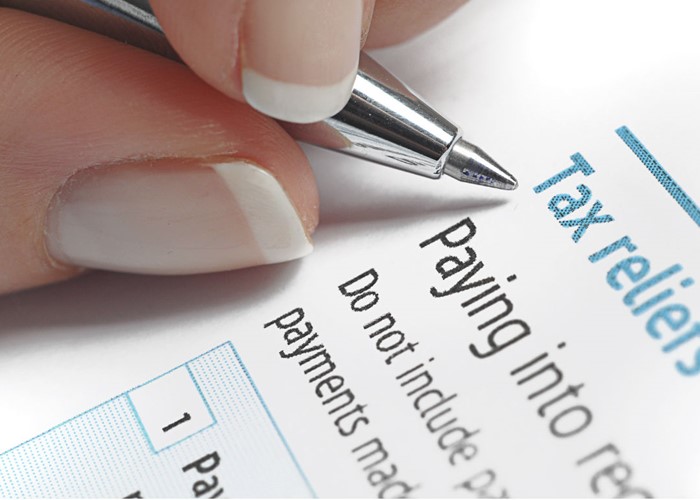Second job: top tips and considerations before you take on extra work

Whether you need to make extra money or simply want to follow your passion in your spare time, there are a lot of things to consider before taking on a second job, explains Hargreaves Lansdowne's Sarah Coles.
More than a million people in the UK have taken on a second job – whether they work weekends or evenings for another employer, or have a side hustle making money from home in their spare time.
Often the primary driver is financial, but it’s not the only benefit. It may give you the freedom to build your working life around the rest of your life.
A new parent, for example, may have moved into part-time work to balance work and childcare, and then take on extra work in the evenings when their partner is home.
It can also provide a valuable outlet for their skills.
In many cases, the work they love isn’t well enough paid, so they take on a second role to ensure that they can do the work they love, without running into financial difficulties.
And a side hustle can offer up an excellent Plan B. This can be really valuable if you’re worried that your job or first choice of career isn’t secure.
It can also be a low-risk way to dip your toes into a new career, building experience and contacts, without having to take the plunge overnight.
You don't have to take on an extra job to earn extra money

Finding a balance between new and old work
If you want to set up a new business, then doing so on a small scale in your spare time involves far less risk than giving up your job and putting all your eggs in one basket.
However, if you don’t make plans sensibly and consider all the repercussions, rather than helping build your career, it can actually end up damaging your current position.
The side hustle won’t help ease your financial situation if you end up losing your job as a result, so check whether your employer has a policy on second jobs and whether your contract makes it clear these are either allowed or forbidden.
Sometimes there won’t be an overall ban, but you won’t be allowed to work for a competitor or work for an employer that could bring your first employer into disrepute.
Even if a second job is allowed, consider whether you have the time for another role. The best way to check is to keep a diary of how you spend your time – everything from commuting to doing chores, carrying out family responsibilities, and any extra hours you do for work.
You only have time for another job if you can fit it in without displacing any of these.
Your home life is just as much of a consideration: it’s not just a question of meeting responsibilities to your family, but making sure you free up enough space to avoid damaging your relationships.
Even if you have the time, do you have the energy?
Unless you’re sure you can easily handle both jobs, there’s a risk you’ll be over-stretched. You could end up getting increasingly stressed, or finding you’re over-eating or have no time or space left for exercise.
Eventually, you could burn out altogether.
Set up a Stocks and Shares ISA (capital at risk)
Don't forget the taxman
When you’re weighing up whether it’s worth your time and energy, don’t forget to factor tax into any calculations.
This is especially important if you’re on the cusp of a higher tax bracket, at which point you have to ask whether you’ll take enough home for it to be worth your while?
Consider, for example, a parent who will see their income rise above £50,000: not only are they taxed at 40% on the extra, but they lose a slice of their child benefit too.
Likewise, a parent using tax-free childcare and seeing their income go a penny over £100,000 will lose their right to this benefit – worth up to £4,000 a year in tax relief.
You also need to think about any benefits, in case your earnings put you over any limits, and reduces the benefits you receive.
If you decide to go ahead, there’s some tax admin to get right. If you’re working for another employer, HMRC will update your tax code to reflect your new position. However, you need to tell the taxman immediately, to make sure this happens quickly.
Make sure you're paying the right amount to HMRC: how to check your tax code

HMRC will have applied your Personal Allowance to your first job, and if you don’t help them join the dots, there’s a risk they’ll apply your personal allowance to your second job too, so you’ll face an unexpected tax bill later.
Similarly, if your combined income takes you over the basic rate threshold, there’s a risk HMRC won’t know to tax the excess at the higher rate, so will hit you with a bigger tax bill further down the line.
If you’re taking on a second job on a self-employed basis, you need to arrange to pay tax on this second income through self-assessment. Contact HMRC as soon as possible to let them know you will have self-employed income in future.
You also need to be sure you’re putting enough money aside to cover your tax bill. If you’re new to self-employment, it’s easy to be caught out by the fact you’re taxed so long after you earn the money, so work out what tax will be due, and put it aside in a separate savings account.
20 ways to legally minimise your tax bill
Other financial considerations
Your second job may also mean you’re automatically enrolled into a second pension.
You’ll need to keep track of this, and eventually, it may make sense to consolidate your pension in future. You should also weigh up the best way of taking pensions from each employer, depending on what each offers.
You also need to check your hours. If you’re under the age of 18 you’ll be limited to 48 hours a week.
If you’re over 18, the working time regulations will limit your total working hours to 48 a week – if you are working for employers - so if your second job takes you over this, you need to ensure you have opted out of it.
If after all this, you realise a second job isn’t worth it, consider whether there’s any other way to rebalance your budget by cutting costs.
The first steps should include the basics, like switching all your bills to a cheaper alternative, ditching needless direct debits for things you don’t use, buying supermarket own brands or from a discount retailer.
You can also sign up for things like cashback websites and discount apps for more money off everything you buy. If you’ve already done this, you may need to consider more serious cuts, and changes to your lifestyle to get around the shortfall.
This kind of sacrifice isn’t easy, but it’s far better to face this head-on before your finances have become a problem than put it off and hope for the best.
Comments
Be the first to comment
Do you want to comment on this article? You need to be signed in for this feature